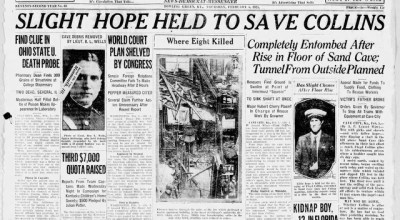Uninsured & counting
Published 12:00 am Friday, December 4, 1998
Tina Loy (left) clinic manager for Warren County Primary Care Center, examines
It is one of the most difficult issues we face as a nation right now, Smith-Mellow said. Insurance
Few in southcentral Kentuckys healthcare industry were surprised to hear that another 1 million Americans joined the ranks of the uninsured last year. Most already knew that the challenge of providing affordable health care in America is getting worse every day. This is going to be an increasingly serious problem in our country … and will be until something is done federally to alleviate the problem, said Frank Brown, director of Barren River District Health Department.Look at other industrialized nations. There is a basic health care available (for everyone). It is expected, and it is there. They have a basic understanding that they have to have certain levels of health care available for (their) people, then they move on to something else. We havent thought that way in our country. The word health isnt in our Constitution. We have guaranteed theright to liberty and happiness, but nobody said anything about health care. An estimated 44.3 million people in the United States 16.3 percent of the population had no health insurance in 1998 an increase of about 1 million people since 1997, according to a report released today by the Commerce Departments Census Bureau. The numbers are becoming increasingly obvious as requests for indigent care at places like the health department rise at an astonishing rate. I can tell a big difference just from last year to this year, Brown said. We get a couple hundred (uninsured) people every week, and many others choose to go without care. Part of the problem with insurance is its increasing cost and a lack of competition among carriers in Kentucky, said Jerry Noland of Noland Insurance Agency. In Kentucky, there are more uninsured now than ever, he said. I have people that have been insured with me for years that arent now because of the cost. With only two carriers Anthem (Blue Cross and Blue Shield) and Humana you dont have much competition, so they charge whatever they want. Since 1994, I have lost 25 to 35 percent of just my individual market alone. It has affected every insurance agency in Kentucky, but if there is anyone more frustrated than agents, its the clients. But the lack of competition is a simple answer to a complex problem, said Michal Smith-Mellow, a senior policy analyst for the Long Term Policy Research Center in Frankfort. This is a national problem and people are giving specifics from our (state) regulatory environment, she said. Other people will tell you that the (rising cost) has to do with technology, high expectations of people who are insured, the increasing cost of pharmaceuticals and our aging population. Also, an expanding job market is taking many people especially women off welfare and putting them in low-paying or part-time jobs that offer no health insurance, Brown said. These people, who once had insurance and lost it because of a new situation or because they simply cant afford it, are living a risky life, he said. Not to have insurance means the simple preventative things like a mammogram or anything most health insurance pays for once every year or two is getting skipped, Brown said.So if a person really has a problem, its not getting detected early. Solutionsare a hot topic in the health insurance industry. It is one of the most difficult issues we face as a nation right now, Smith-Mellow said. Insurancehas gone up everywhere and it is going up in our state quite a bit. It is becoming less and less affordable for the average working-class American, and thats a huge problem. The Long Term Policy Research Center will have a conference to try to come up with some answers Nov. 18 in Bowling Green. It will focus on access to health care and ways we can address this perplexing issue, Smith-Mellow said.




